At a Glance
September 2026 in Singapore
Relevant and Rigorous
The Executive Master in Change (EMC) programme is developed and designed in collaboration with industry leaders and supported by leading companies in technology, banking and consulting. This continued business input ensures an integration between management practice and intellectual rigour.
Course Curriculum
The programme consists of eight on-campus modules of three to four days each (including a weekend). In addition, participants will also have a total of 60 hours of “practicum” (various experiences designed to apply the course content and bring the clinical perspective alive) in between modules as well as written work, readings and group calls. The programme concludes with a Master Thesis.
Module 1
Building Foundations
You will gain a theoretical and methodological grounding in behavioural, clinical, cognitive and psychoanalytical schools of thought.
- Learn to use psychodynamic and other psychological concepts to explore the hidden dimensions of yourself and organisations
- Open the door to exploring the unknown
Module 2
Interpersonal Perspectives
You will expand your horizons on organisations as networks of inter- and intra-personal interactions.
- Make sense of your inner theatre
- Learn to understand both your own and others’ emotions
- Increase your ability to recognise and diagnose key behaviours
- Discover techniques to regulate your emotions
Module 3
Leadership Dynamics
- Practicum: Executive Exchange
- Engage in comprehensive 360-degree feedback exercises examining your professional and personal leadership style – as well as a personality audit
- Use these insights to develop a personal leadership-development plan
- Understand the nuanced differences between effective and ineffective leadership styles
- Create high-performance teams
Module 4
Organisational Family Systems
You will examine the role of families in shaping our thinking and as our first model of how organisations work.
- Practicum: Organisational Observation
- Develop your ability to apply family-systemic thinking in coaching and consulting
- Build your appreciation of the influence that your family has on you and your work
- Gain an understanding of the unique business and interpersonal challenges of advising family-owned businesses
Module 5
Intergroup Dynamics
You will take part in an experiential learning exercise to explore a theoretical framework for understanding the psycho-socio dynamics of groups and teams.
- Increase your understanding of group decision-making, influence processes and multi-party team dynamics
- Learn to increase cohesiveness and effectiveness regarding tasks
- Understand the roles you play in a team - practise team coaching
Module 6
Organisational Change
You are taught to think systematically and strategically by examining organisational resistance to change.
- Address the challenges of diagnosing and changing behaviour in organisations
- Gain insights into change from both classical and system-psychodynamic perspectives
- Engage in an in-depth case consultation by presenting your change-management study
Module 7
Human Behaviour Dynamics From The Organisational And Macro Perspective
- Practicum: Designing an Intervention
- Learn about dynamics such as power and politics, social networks and organisational culture
- Keep up-to-date with the most recent research, new trends and perspectives through INSEAD faculty and visiting professors
- Use the skills and knowledge from previous modules to better understand the process of human and organisational development
Module 8
Transforming Self and Society
You will develop your own approach to change and transformation.
- Navigate career transition
- Implement the new perspectives you have gained to develop a unified and integrated change process
Learning Methodology
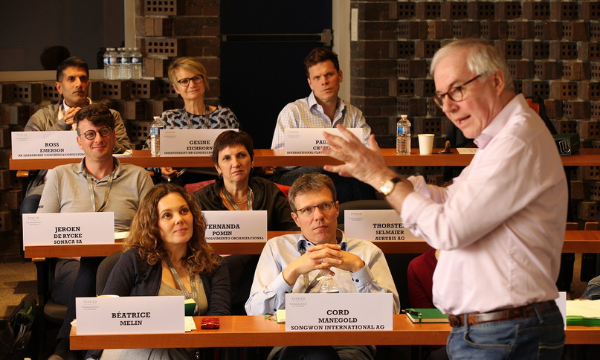
The term “clinical” simply implies that real-life situations are examined – as opposed to “theoretical” knowledge. All of the programme’s learning is derived from real life or can be applied to it.
The main premises are:
- Much of what happens to us is beyond conscious awareness
- The past is the lens through which we can understand the present and shape the future
- Nothing is more central to who we are than the way we express and regulate emotions
- We all have blind spots – and others can help us to see them more clearly.
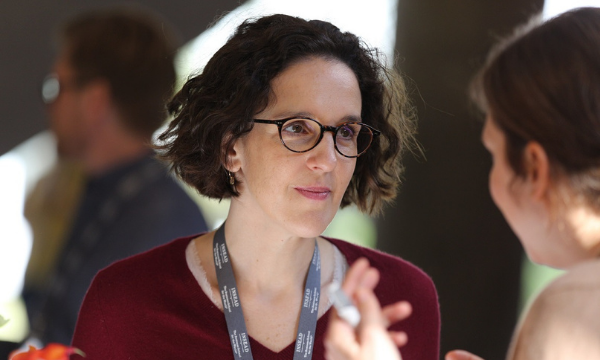
At INSEAD you will be in a classroom with peers from all over the world, who will bring a rich set of perspectives to bear on the challenges you face.
The programme is designed to provide a safe, reflective transitional space, where you can step back, gain perspective and even experiment with yourself. You will explore deeply emotional topics and be asked to share in a way perhaps never experienced before, but you will always feel protected – and you will also laugh as you learn.
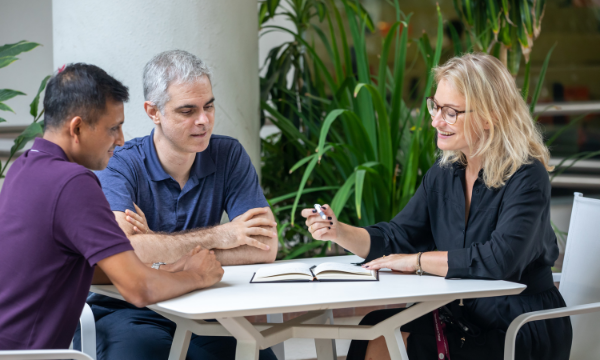
The class is closely supervised by two programme directors who are both present for every session – teaching, facilitating or containing the learning.
Much of the learning takes place in small groups, which provide a framework for peer coaching. Each director looks after three groups, whose members are shuffled at various points during the programme.
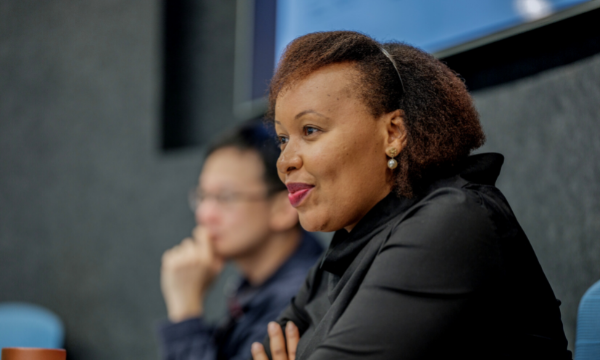
The academic content of the programme is delivered through a variety of methods:
- Recommended reading
- Lectures from world experts
- Masterclasses
- 360-degree feedback instruments
- Simulation exercises
- Discussion sessions and group work
However, unlike most business school programmes, there are no case studies of external situations. Instead, participants are themselves invited to act as “live case studies”, but only if they wish.
Testimonials

Sami Al Solamy, EMC'22
The EMC programme has helped me to gain the deeper experience of reflecting on myself by having the capacity to be both the participant and observer.
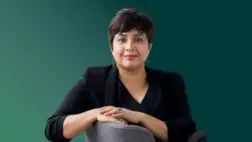
Shweta Kumar, EMC'20
I could never have got this far without being part of EMC programme. It changed my life.
An Inside View of the EMC Learning Experience
Learn more about the EMC classroom and practicum experience through the eyes of our participants, and explore a selection of EMC Master theses.

Article: Demystifying the EMC Classroom Experience

EMC Practicum: A Life-changing Voyage

EMC Practicum: Organisational Observation

EMC Practiclum: Designing an Intervention

EMC Case paper: Rethinking Resilience

EMC Master Thesis: The Annals of Psychodynamic-Systemic Practitioner Research
Any Questions?
Or try recently asked questions:

